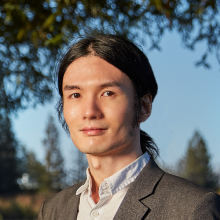CEE Seminar: Environmentally Sustainable Concrete - A Gigaton-Scale Enabler of Renewable Energy and Carbon Capture, Utilization and Storage

Lawrence Fellow
Lawrence Livermore National Laboratory
Abstract: Critical to the sustainability and resilience of our built environment is re-engineering the materials and infrastructure systems. The grand challenges facing civil and energy infrastructure are decarbonizing resilient structural materials and scaling up cost-competitive clean energy generation, respectively. Focusing on the world's second most used material, concrete, which accounts for ~8% of global greenhouse gas emissions, we can address these grand challenges in a synergetic manner — incorporating the emerging byproducts of the renewable energy sector into concrete. Understanding how concrete can be re-engineered with the pursuit of clean energy from the nanoscale to the macroscale is critical to mitigate global warming. This seminar will explore scalable solutions for infrastructure sustainability and concrete decarbonization by incorporating waste and byproducts from civil and renewable energy infrastructure, such as biofuel and hydrogen.
Bio: Jiaqi Li received his doctorate from UC Berkeley in 2019 in civil and environmental engineering with a concentration in structural engineering, mechanics and materials. Prior to joining the Lawrence Livermore National Laboratory as a Lawrence Fellow (PI) to develop an independent research program, he was a postdoctoral scholar at UC Berkeley and Lawrence Berkeley National Laboratory (biophysics). Li has broad research interests in the chemistry, nano-mechanics and environmental impacts of low-carbon-footprint cement; carbon capture, utilization, storage (CCUS) and clean energy; and advanced synchrotron-based materials characterization techniques. He is developing disruptive but scalable approaches to decarbonizing energy and civil infrastructure systems and materials by linking concepts from biochemistry, geochemistry, electrochemistry and industrial ecology. Li is receiving $1.2 million in sponsored research funding as sole-PI, $16 million as multi-PI (3), and $0.2 Million as co-PI. As the first author, he has published 17 peer-reviewed journal articles.
Share
Upcoming Events
-
EECS Seminar: Less Compute, More Intelligence – Efficient and Autonomous Generative AI and Agents
-
MAE 298: Microscopic Robots that Sense, Act and Compute
-
CBE 298 Seminar: Interface Modification for Electrocatalysis
-
CEE Ph.D. Defense Announcement: Machine Learning and Remote Sensing for Environmental Modeling - From Large-Scale Streamflow Forecasting to Malaria Risk Mapping
-
CBE Special Seminar: Operando Electrochemical Methods at Dynamic Energy Materials Interfaces
